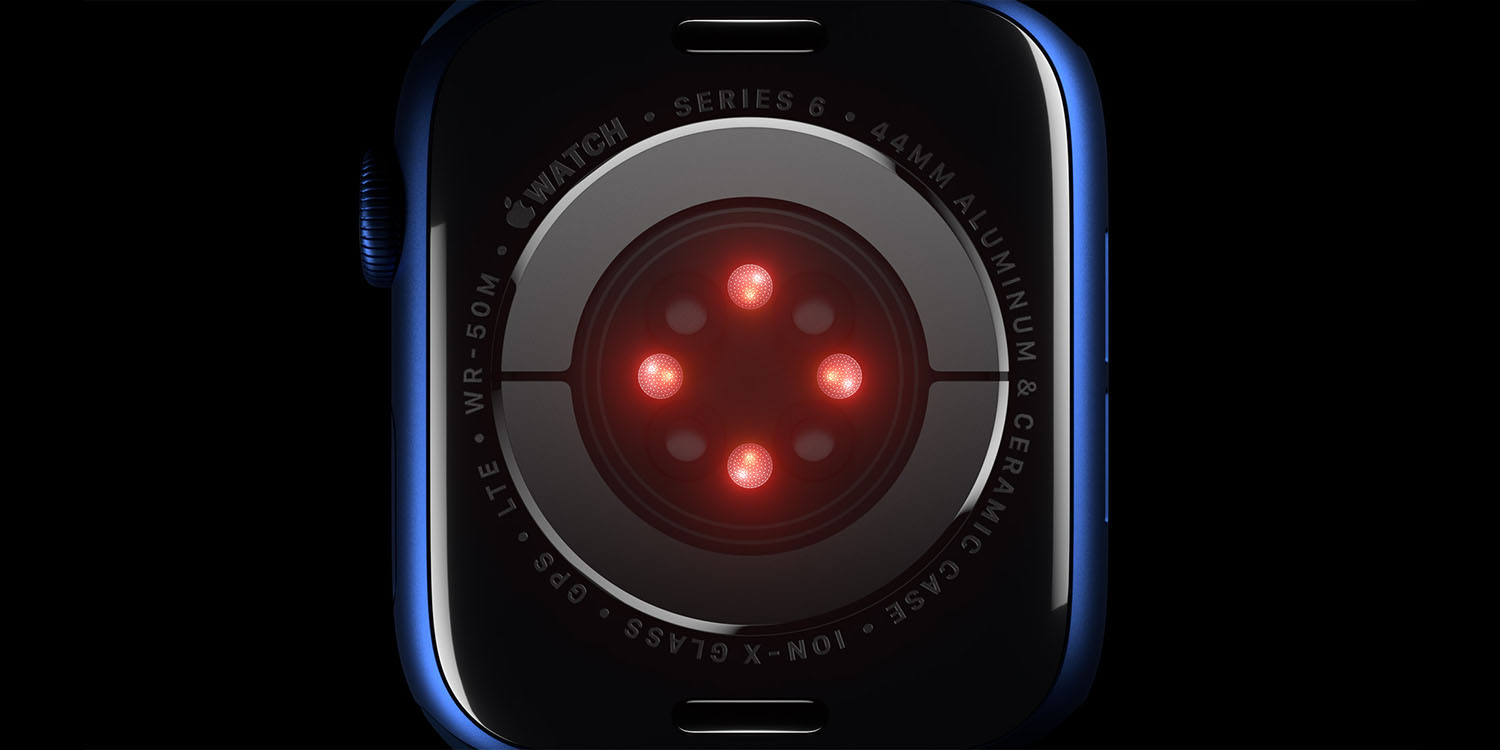
Apple paid a Masimo exec millions of dollars worth of shares – as well as doubling his salary – in order to persuade him to bring patented blood oxygen tech to the company, claims a new report today.
Today’s report is the latest episode in a long-running battle between the two companies over whether or not the Apple Watch’s pulse oximeter uses Masimo’s patented tech …
The story so far
Way back in 2013, Apple reportedly contacted medical tech company Masimo, as it was interested in forming a “working relationship” with the company. Following meetings in which details of Masimo’s pulse oximeter technology was discussed, Apple is said to have begun poaching the company’s staff.
One 2013 hire, confirmed at the beginning of 2014, was Masimo’s chief medical officer, Dr. Michael O’Reilly.
In 2020, Masimo filed a lawsuit officially accusing Apple of stealing trade secrets, and infringing ten of the company’s patents, in the O2 sensor in the Apple Watch.
The dispute between the two companies escalated later the same year, when the Apple Watch Series 6 launched with a new blood oxygen detection feature. Masimo asked the US International Trade Commission to ban imports of the new model.
That attempt failed, but earlier this year a court ruled that Apple had indeed infringed one of the ten patents. The Cupertino company is trying to have the decision overturned, with a final ruling expected next month. Apple also hit back, accusing Masimo of making an Apple Watch clone.
Apple paid Masimo exec millions of dollars
The WSJ has now run a piece addressing the broader issue of Apple’s apparent habit of promising companies partnerships, only to fail to follow through, and later use very similar tech in its own products.
Masimo is one of the companies interviewed, and the scale of the offer made to O’Reilly is revealed.
A few months later, Mr. Kiani said, he got a call from his chief medical officer, Michael O’Reilly, informing him he was joining Apple, which he said had agreed to double his salary and pay him millions in Apple shares […]
Mr. Kiani is one of more than two dozen executives, inventors, investors and lawyers who described similar encounters with Apple. First, they said, came discussions about potential partnerships or integration of their technology into Apple products. Then, they said, talks stopped and Apple launched its own similar features.
Apple said that O’Reilly was careful not to divulge Masimo’s intellectual property during his work on the Apple Watch, and that it hired him for his expertise rather than his knowledge.
Apple’s attempts to invalidate patents
A key tactic adopted by Apple in fighting these cases is attempting to have the relevant patents declared invalid – as well as going after other patents owned by the companies, in an apparent attempt to deter such claims.
Apple has tried to invalidate hundreds of patents owned by companies that have accused Apple of violating their patents. According to lawyers and executives at some smaller companies, Apple sometimes files multiple petitions on a single patent claim and attempts to invalidate patents unrelated to the initial dispute.
9to5Mac’s Take
We’ve noted before that this is likely to be a tricky one to unravel. It’s clear that Apple did have access to a great many trade secrets from Masimo – which has long made medical monitoring equipment for hospitals – and it’s a matter of record that the Cupertino company poached several staff.
Pulse oximetry itself is very old tech, having been used in hospitals for decades, but usually it relies on a separate emitter and sensor on opposite sides of a finger or earlobe. Eliminating the need for this was a very significant development, without which the O2 functionality in the Apple Watch Series 6 and later would not be possible. Determining whether or not Apple developed this tech independently is not going to be a trivial task.
Additionally, while the implication is that Apple uses its clout to attack patents in these cases, it’s also undeniable that the patent system is a complete mess, with many patents granted for things which are either obvious, or far too general to qualify as true IP. It’s perfectly reasonable to attempt to have these types of patents invalidated.
FTC: We use income earning auto affiliate links. More.




Comments